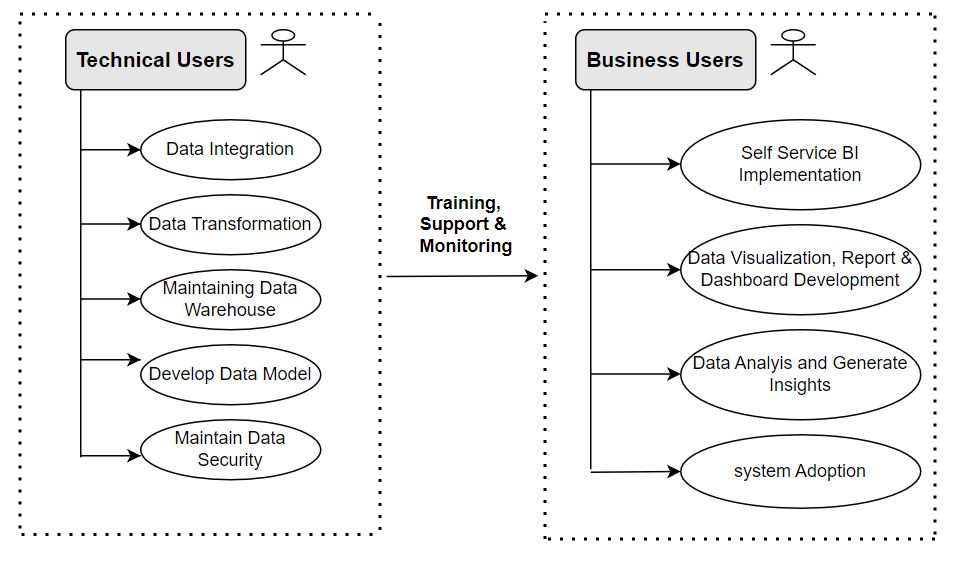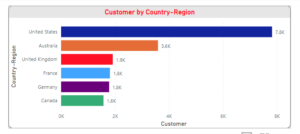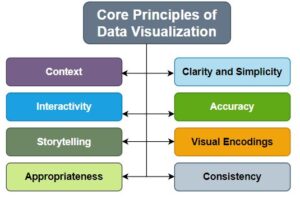Self-service BI (business intelligence) refers to a set of tools, technologies, and processes that enable non-technical users to create their own reports, dashboards, and analytics without requiring the assistance of IT professionals or data analysts. These tools typically include user-friendly interfaces and drag-and-drop functionality, allowing users to easily access and manipulate data from a variety of sources.
The goal of self-service BI is to empower business users to make more informed decisions by providing them with timely and relevant insights into key performance metrics and business trends. By enabling non-technical users to create their own reports and analytics, self-service BI can help improve agility, responsiveness, and collaboration across an organization.
Self-service BI can be extremely important in large organizations for several reasons.
First, with multiple departments and units, there is a need for customized reports that reflect the specific needs and goals of each team. With self-service BI, non-technical staff can create their own reports and analytics using tools and interfaces that are easy to use and understand.
Second, since departmental staff often have more business knowledge than IT professionals, self-service BI can help ensure that the reports and analytics created are more relevant and accurate. This can lead to better decision-making and a more efficient use of resources.
Third, since requirements for reports and analytics can change frequently, self-service BI can help ensure that the organization is able to quickly adapt to changing needs. With the ability to create, modify and publish reports in real-time, self-service BI can help improve agility and responsiveness.
Some of the most popular self-service BI tools are :
- Microsoft Power BI
- Tableau
- QlikView
- Domo
- Microsoft Excel
While self-service BI can be a valuable tool for non-technical staff, IT professionals play an important role in Self-service BI management. Ways in which IT professionals can add value to the process include:
- Provide technical expertise
- Ensure data security
- Streamline the processes
- Provide Training and support

IT professionals can focus on developing more advanced analytics and data models, working on data governance and data quality initiatives, and implementing new BI technologies and platforms. They can also provide guidance and support to non-technical staff on how to effectively use self-service BI tools, and work to develop best practices and standards for report development.
Overall, self-service BI can help IT professionals to shift their focus from routine and repetitive tasks to more complex and strategic initiatives that can help drive business success. This can lead to increased job satisfaction and career growth opportunities for IT professionals, as well as improved efficiency and productivity for the organization as a whole.




